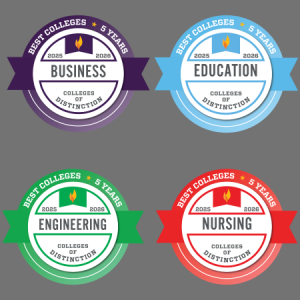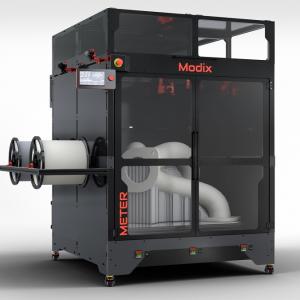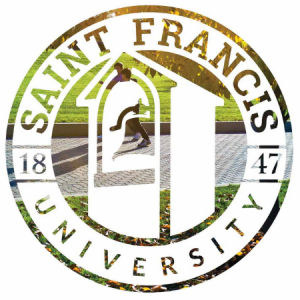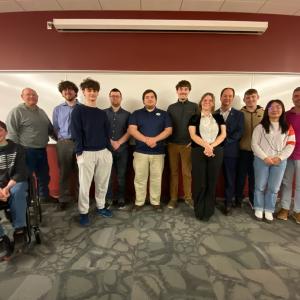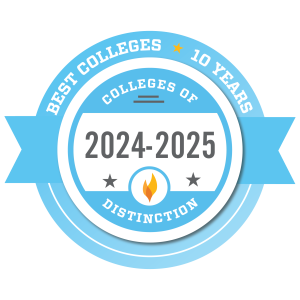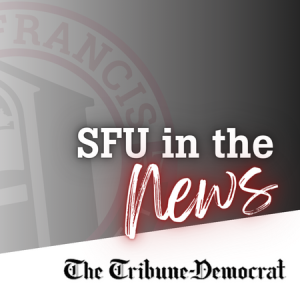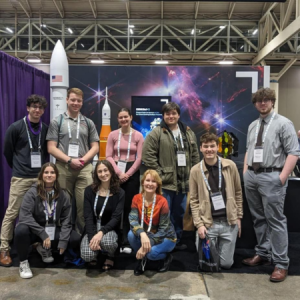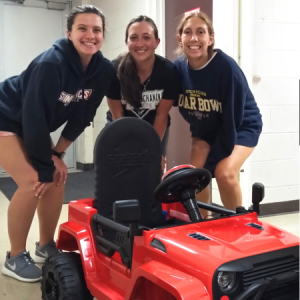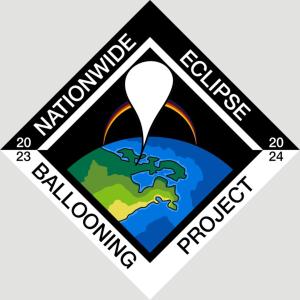
SCHOOL OF STEAM
General Engineering, Bachelor of Science
Mechanical Engineering, Aeronautics, Computational Modeling, Robotics, Innovation & Entrepreneurship
Explore a Franciscan-minded, career-focused Engineering major designed with your goals in mind.
The General Engineering B.S. program at Saint Francis University is designed for students like you—curious, hands-on learners who want options. Whether you’re aiming for a career in a specific field, planning to go to grad school, or want to apply engineering in unexpected ways, this program gives you the tools, experiences, and support to shape your future.
Learn by Doing with SFU Engineering
At a Glance
Our General Engineering B.S. program offers a flexible, hands-on education that equips you with strong problem-solving skills and a broad understanding of engineering principles. Here are a few things that make this program unique.
- Flexible Pathways: Choose from one of 5 specialized minors: Mechanical Engineering, Aeronautics, Computational Modeling, Robotics, or Innovation & Entrepreneurship.
- Career Prep & Exploration: Seminars led by industry professionals, on-campus networking opportunities with interested employers, and engaged alumni give you a leg up as you pursue your future.
- Hands-On Learning: Tackle real-world projects with community impact as you gain technical rigor.
- Personalized Education: With small class sizes and dedicated faculty, you can expect individualized attention and mentorship.
- ABET Accreditation: The program is accredited by the Engineering Accreditation Commission of ABET, ensuring that it meets industry and academic standards.
The best way to explore what the student experience really feels like is to schedule a visit!
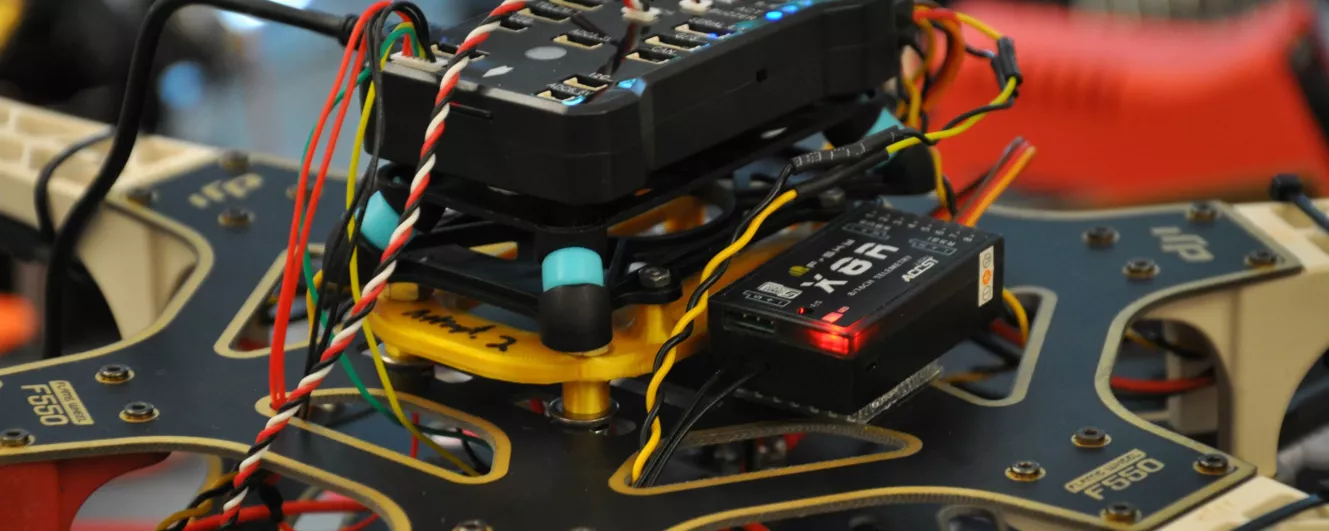
General Engineering the SFU Way
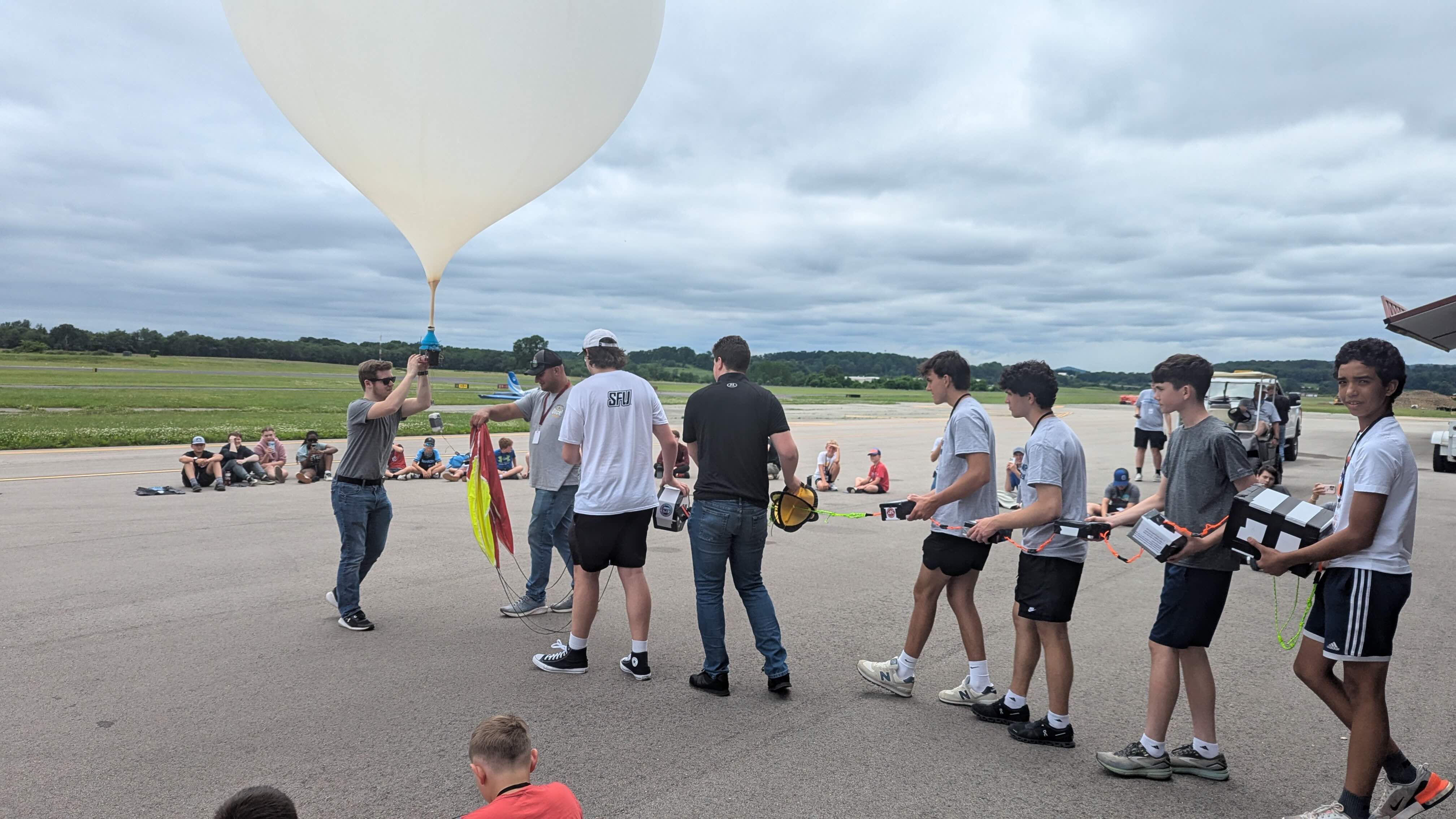
Built to Serve
At Saint Francis University, engineering is more than equations and problem sets—it’s about using your skills to serve others. From your very first semester, you’ll dive into an eight-semester design sequence that connects classroom learning with real-world impact. Whether you’re helping a child struggling to walk or aiding a meteorologist in need of data from 80,000 feet, you’ll work on meaningful projects that touch real lives—starting day one.
Careers Launch Here
Your hands-on experience doesn’t stop there. Our students gain hands-on knowledge through internships both locally and across the country, discovering where they fit in the vast world of engineering. Want to see how they turned these experiences into career launches? Explore a few of their stories here: Engineering Majors Land Notable Internships and see how internships led to first jobs.
Where does an SFU engineer work?
Follow Us on Facebook to See SFU Engineering Students in Action
What do our students work on? Find out here!
CURRICULUM & COURSES
What You’ll Learn in the General Engineering Program
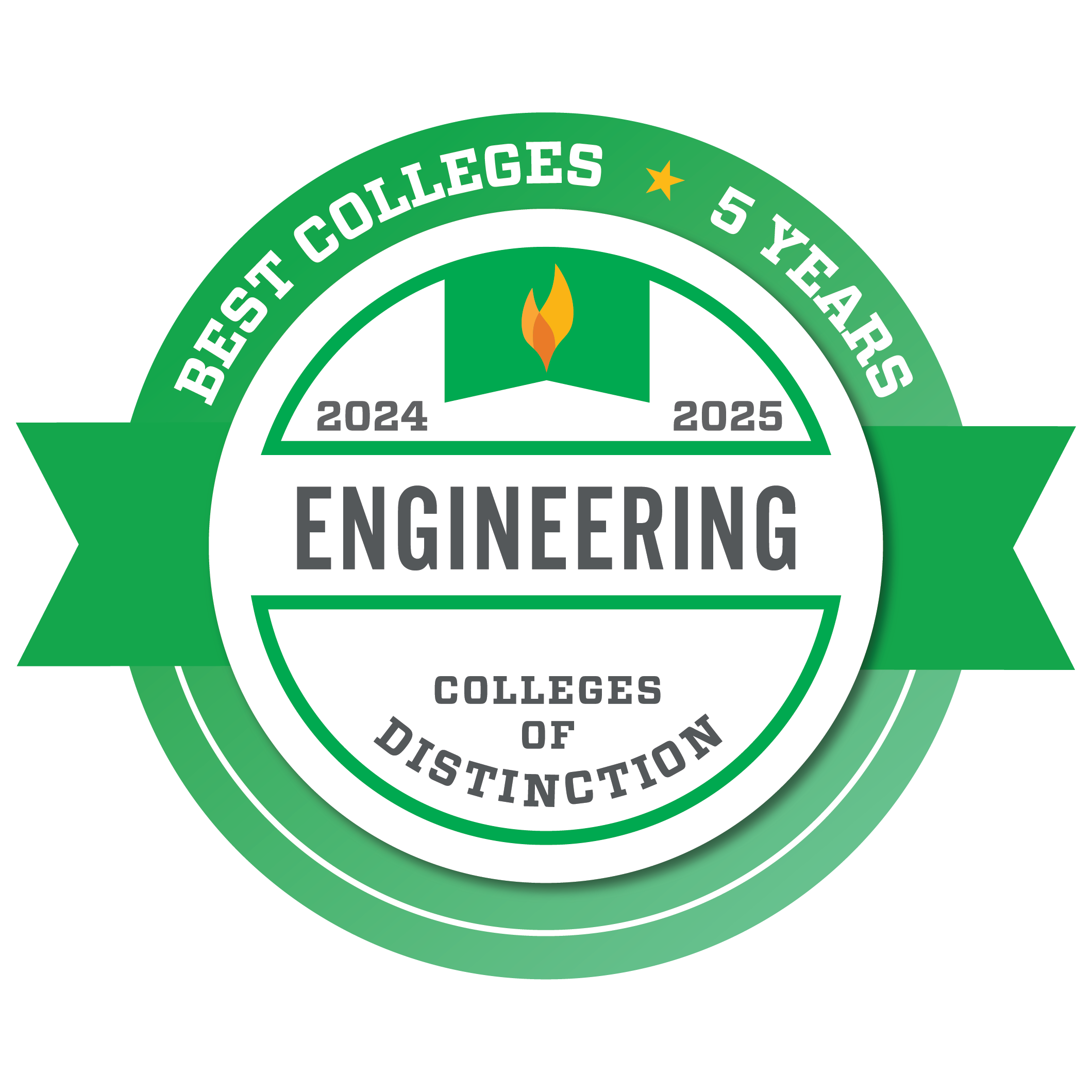
The General Engineering degree at Saint Francis University is a 4-year bachelor of science degree focused on the broad application of engineering fundamentals with a particular focus on problem-solving and analytical skill-building.
Minors within the General Engineering B.S. include:
Aeronautics, Computational Modeling, Innovation and Entrepreneurship, Mechanical Engineering, and Robotics
The program offers:
- a solid foundation in basic engineering and science
- strong math and programming skills
- advanced, focused engineering topics
- upper-level engineering electives and advanced math and science topics that foster your applied technical problem-solving abilities
Program Overview
- On-campus bachelor's degree program with specialized minors
- Course Descriptions: Catalog - 25/26
- 129-131 total credits
- 4-year anticipated completion
- Priority enrollment deadline: May 1
Choose one of five minors to complete your degree:
Mechanical Engineering
The mechanical engineering minor prepares you for entry into the breadth of engineering with coursework ranging from control theory to heat transfer to machine design and advanced fluid mechanics. Excellent preparation for jobs from mechanical design to aerospace.
Aeronautics
Offering a more practice-oriented entry into aviation, this minor mixes flight training for a Private Pilot's license with a mechanical engineering background. Additional coursework will enable further flight training, including instrument, commercial, and CFI ratings.
Computational Modeling
Computational and numerical design programs; computational modeling skills, mathematical solution methodologies, and specialized computer programming.
Innovation/Entrepreneurship
Leave the beaten path and forge your own direction. Entrepreneurship and innovative practices; prepare for consulting or developing new technologies or new technical startup companies.
Robotics
Autonomous systems (like self-driving cars) and unmanned vehicles, robotic controls. Advanced topics in artificial intelligence and machine learning.
More options:
Visit our Engineering Program Portfolio Page to see all of our engineering offerings.
Each student will have demonstrated proficiency in the following outcomes upon graduation with a Bachelor of Science in General Engineering:
- an ability to identify, formulate, and solve complex engineering problems by applying principles of engineering, science, and mathematics;
- an ability to apply engineering design to produce solutions that meet specified needs with consideration of public health, safety, and welfare, as well as global, cultural, social, environmental, and economic factors;
- an ability to communicate effectively with a range of audiences;
- an ability to recognize ethical and professional responsibilities in engineering situations and make informed judgments, which must consider the impact of engineering solutions in global, economic, environmental, and societal contexts;
- an ability to function effectively on a team whose members together provide leadership, create a collaborative and inclusive environment, establish goals, plan tasks, and meet objectives;
- an ability to develop and conduct appropriate experimentation, analyze and interpret data, and use engineering judgment to draw conclusions;
- an ability to acquire and apply new knowledge as needed, using appropriate learning strategies.
Accreditation Statement:
The General Engineering program at Saint Francis University is accredited by the Engineering Accreditation Commission of ABET, http://www.abet.org
ABET accreditation was received in the 2020-2021 cycle and is retroactive to October 1, 2019. Accreditation extends through September 2025.
ABET may be contacted at 111 Market Place, Suite 1050, Baltimore, MD 21202; 410-347-7700; www.abet.org
ABET accreditation is external proof that our General Engineering Program has met certain standards necessary to produce graduates who are ready to enter the engineering profession.
In order to maintain our status as an accredited program, we are focused on helping our students attain the "Program Educational Objectives" and "Student Outcomes" that are published below.
Program Educational Objectives
Graduates from the Saint Francis University General Engineering program are expected within a few years of graduation to:
- Create value in their professional enterprise whether in fields of engineering practice, or in such related fields that draw on the knowledge, skills, and values of the engineering professional.
- Embrace lifelong learning and their professional responsibilities as they advance to positions of even greater responsibility.
- Contribute a Franciscan perspective as they ethically shape the culture in their workplace, community, and civil society writ large
Enrollment (as of May 2024)
Freshman 11
Sophomores 11
Juniors 16
Seniors 5
Graduates 16
Dedicated Researchers; Passionate Teachers
Our faculty members bring strong academic credentials to the classroom coupled with experience in authentic field projects and research to give you a hands-on experience that translates to real-world skills.
Program Chair:
Dr. Rachel Wagner,
rwagner@francis.edu,
814.471.1215
Career Outlook in General Engineering
General Engineers are prepared to work in fields commonly inhabited by mechanical, electrical, and structural engineers. Our graduates have been employed as engineers by a range of companies, including the following: HF Lenz, Markosky Engineering, Lockheed Martin, Leonardo DRS, the United States Department of Energy, Electric Boat, Curry Supply, McLanahan Corporation, Concurrent Technologies Corporation, and more.
With all these options, let us help you figure out where you want to go! Explore the world of engineering through weekly seminars, annual engineering-focused networking events, and more!
Ready to take the next step?
We’re here to help you succeed. Our enrollment team is happy to answer your questions, set up a time to meet with faculty, and walk you through the application & financial aid processes.
Find your Enrollment Advisor
Explore our team directory and the areas/regions they serve. When you're ready, connect with your enrollment advisor by phone, email, or text.
Schedule your personal visit today and/or sign up for one of our upcoming events!
FAQs
Frequently Asked Questions About the General Engineering Major
-
Students in the General Engineering program complete a year-long capstone design experience by completing all of the following courses:
Our students have worked with industry and government partners in previous years on their capstone projects.
-
The median wage for a General Engineer is $90,000.
-
Our General Engineering degree prepares you for a career in all different kinds of engineering by giving you a robust, carefully planned foundation of technical knowledge. Our concentrations give you some opportunities to gain depth. For example, if you are leaning towards electrical engineering, we recommend our Robotics minor, which includes classes such as Autonomous Systems (CPSC 450) and Control Theory (ENGR 435) in addition to the Fundamentals of Electrical Engineering class (ENGR 325) taken by all our General engineering students.
We can also be creative with minors in other programs that will help you learn the things you need to do in other engineering professions. For example, if you are interested in biomedical engineering, check out the movement science minor. We will work with you to help you achieve your goals!
And don’t forget about our Environmental Engineering program, which offers minors in renewable energy and ecological engineering.
-
The world is your oyster! We are happy to work with you on a project that interests you. Students have worked on projects such as converting a golf cart into an electric golf cart and all kinds of drone-based projects (from remodeling drones to change their payload capacity, to programming for managing drone-obtained data, to building and testing remotely-operated underwater vehicles). Our faculty are eager to have student involvement in their research!
Students in the General Engineering program complete a year-long capstone design experience by completing all of the following courses:
Our students have worked with industry and government partners in previous years on their capstone projects.
The median wage for a General Engineer is $90,000.
Our General Engineering degree prepares you for a career in all different kinds of engineering by giving you a robust, carefully planned foundation of technical knowledge. Our concentrations give you some opportunities to gain depth. For example, if you are leaning towards electrical engineering, we recommend our Robotics minor, which includes classes such as Autonomous Systems (CPSC 450) and Control Theory (ENGR 435) in addition to the Fundamentals of Electrical Engineering class (ENGR 325) taken by all our General engineering students.
We can also be creative with minors in other programs that will help you learn the things you need to do in other engineering professions. For example, if you are interested in biomedical engineering, check out the movement science minor. We will work with you to help you achieve your goals!
And don’t forget about our Environmental Engineering program, which offers minors in renewable energy and ecological engineering.
The world is your oyster! We are happy to work with you on a project that interests you. Students have worked on projects such as converting a golf cart into an electric golf cart and all kinds of drone-based projects (from remodeling drones to change their payload capacity, to programming for managing drone-obtained data, to building and testing remotely-operated underwater vehicles). Our faculty are eager to have student involvement in their research!
